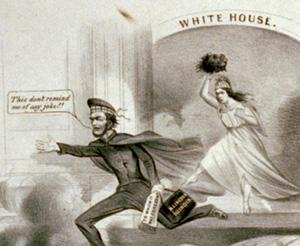NEW COLUMN is “Big Tech’s Financial Terrorism And Social Excommunication (Part 1: The Problem).” It is currently on WND, Towhnhall.com, The Unz Review, and CNSNews.com
Excerpt:
Republican solutions to Big Tech tyranny do not begin to address financial de-platforming, the cancellation of citizen dissidents en masse, including the infringement of the right to partake in the public square and make a living.
In their weak case against Deep Tech (“Deep” to denote enmeshment with The State), Republicans are still defending only some speech on the “merits,” rather than all speech, no matter how meritless.
In a sense, the statist anti-trust bills—targeting especially Apple, Amazon, Facebook and Google—being pushed by lawmakers are worse than useless.
The anti-trust impetus is misguided as it conflates corporate size with anti-competitive practices: the larger, the more monopolistic. However, reducing the size of an entity–a corporation–doesn’t necessarily alter its nature.
When a malignant cell divides, it doesn’t grow less potent. To the contrary, it innervates and enervates more spheres. Likewise breaking up Big Tech. Smaller malignancies metastasize and kill just as well.
The habitual failure of the representatives sent by Deplorables to D.C. to prevent cancellation en masse–the Orwellian nightmare from unraveling–cannot be understated. On the line is dissidents’ ability to speak, publish, partake in society; sell our cultural products, and transact financially over the country’s major online economic and social arteries.
No wonder the Tech crooks appear periodically on The Hill to make fun of the country’s comical representatives and their gullible, pliable voters. The richest man in the world, Jeff Bezos, has no qualms about letting his delivery drivers, who, “operate under severe [app monitored] time constraints,” urinate in bottles for fear of losing their low-wage jobs.
Do you think the dim bulbs in Congress, posturing for the cameras, scare his ilk?
Do not forget that anti-trust busting or the repealing of Section 230 of the Communications Decency Act are solutions the GOP had failed to implement when in control of both chambers and the presidency.
It was under Republican control that de-platforming (of a president, no less), the banning of legions of powerless dissident citizens, including detrimental financial de platforming, “occurred.”
Given this incontrovertible reality, The People have an obligation to quit the “my party, right or wrong” unconditional love, and demand the GOP work to unban ordinary, innocent folks, the crooked politicians be damned….
... READ THE REST. NEW COLUMN is “Big Tech’s Financial Terrorism And Social Excommunication (Part 1: The Problem).” It is currently on WND, Towhnhall.com, The Unz Review, and CNSNews.com
UPDATED: My solutions, presented next week, are not going to exist, as I like to say, in the arid arena of pure thought.
not quite. ?wait for next week? of course, it matters whether you want a fighting answer, for winners, or a meek, theoretically correct answer… I'm gonna give you the fighting answer that you take to the "oleaginous Republicans & their amigos" & say, 'Do it if u want my vote'
— ILANA Mercer (@IlanaMercer) August 6, 2021




